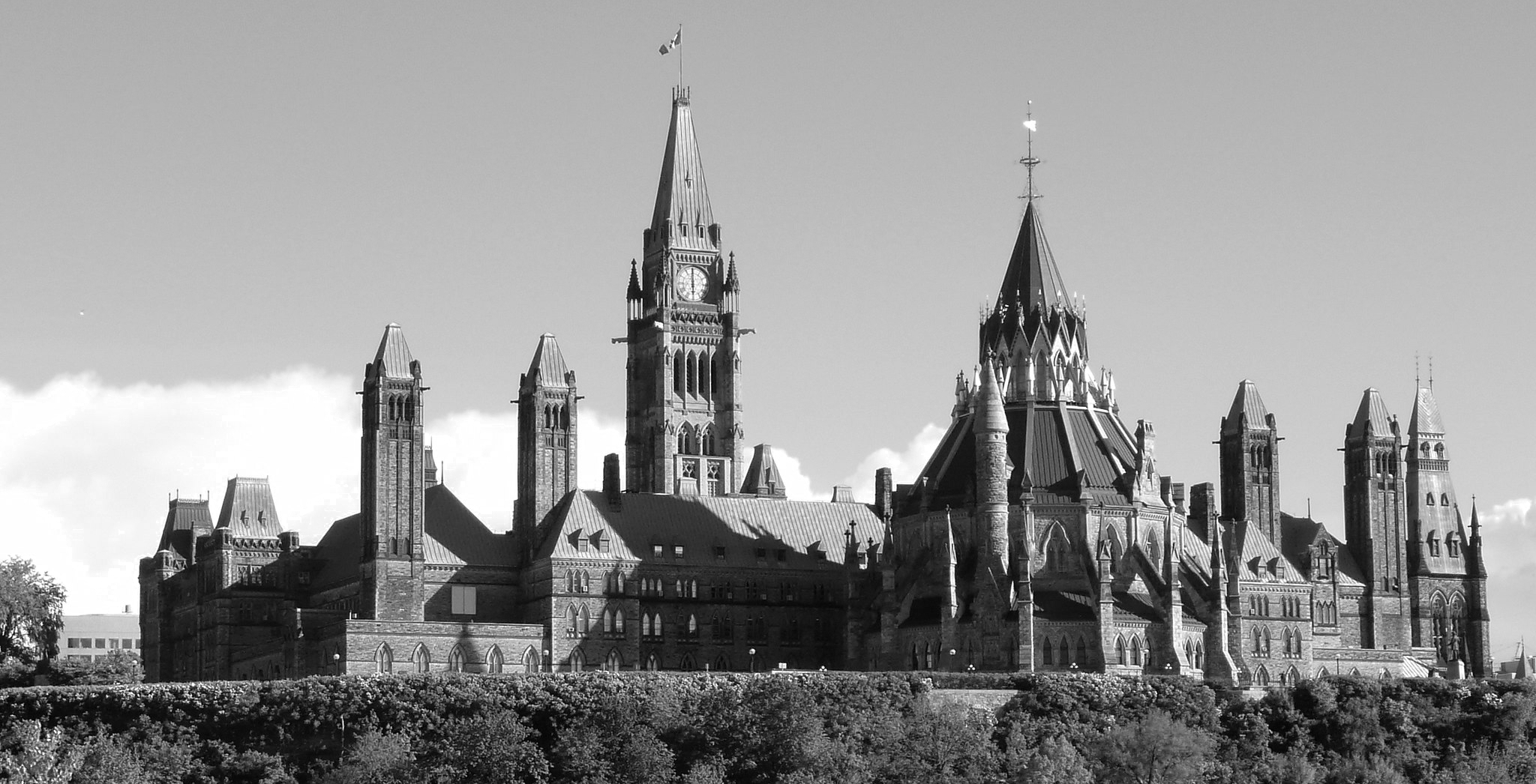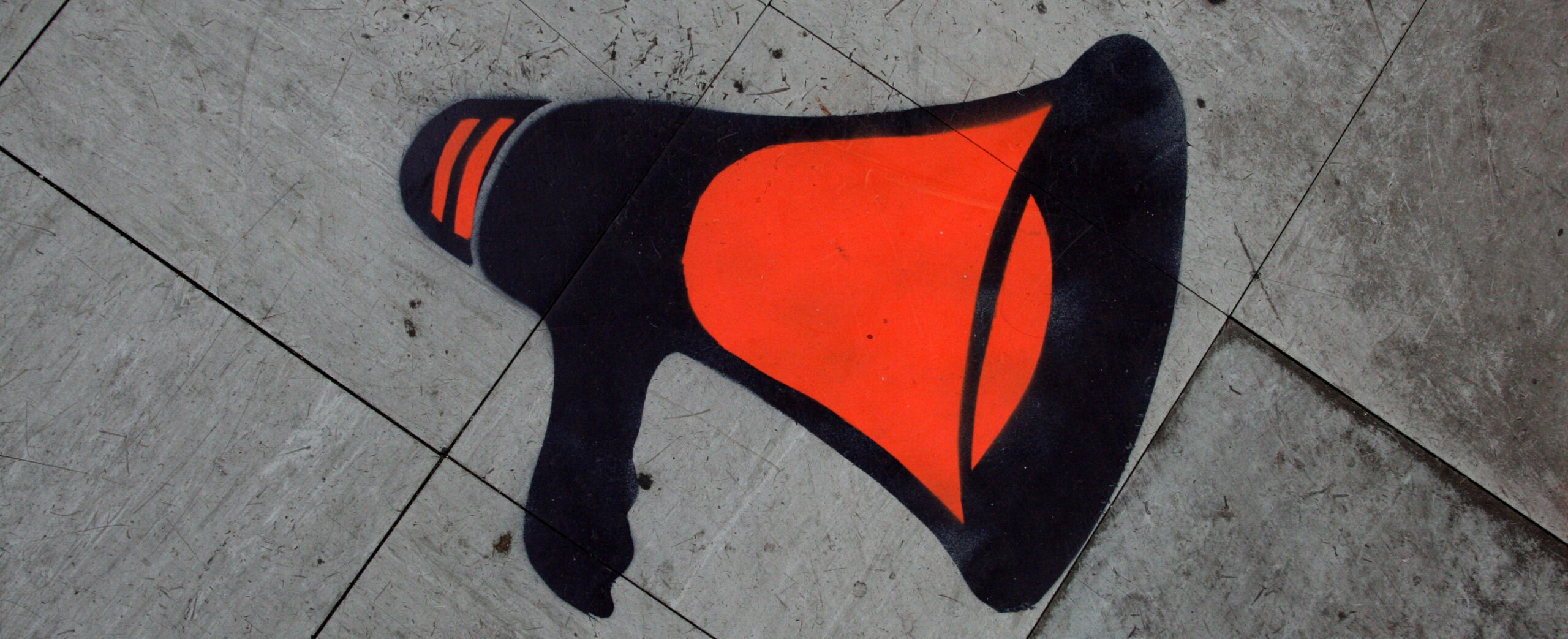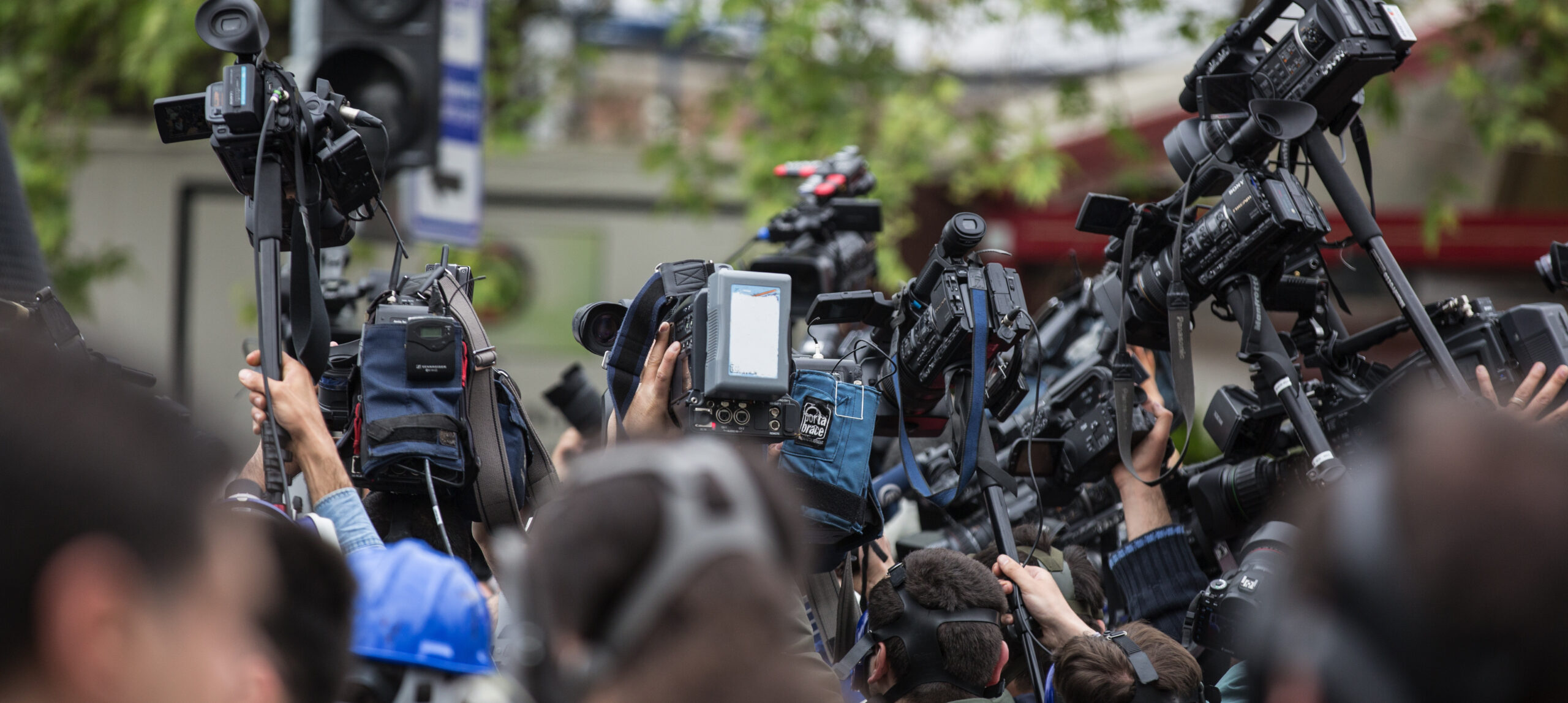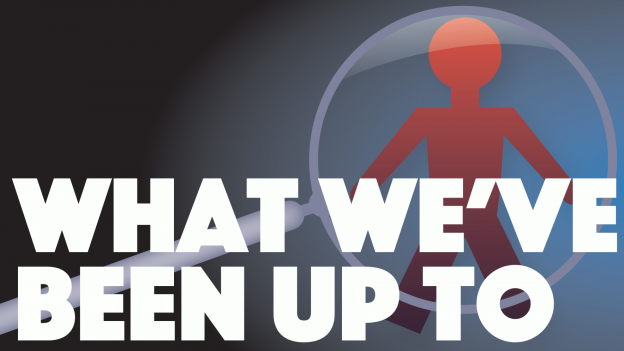
Credit: Tom Bastin/Flickr CC BY 2.0
Bill C-20, Public Complaints and Review Commission Act
Bill C-20 would create a new, independent review agency for both the RCMP and CBSA, the first ever independent review body for the CBSA. ICLMG has:
- Convened meetings with partner & member orgs to coordinate strategy
- Met with Liberal MP and Parliamentary Secretary to the Minister of Public Safety Pam Damoff to discuss our views on the bill
- Met with current members of the Civilian Review and Complaints Commission to discuss how they operate and their views on the bill
- Submitted a brief to the House Standing Committee on Public Safety, with a particular focus on national security reviews and complaints
- Sent a joint open letter signed by immigration, refugee, legal, human rights and civil liberties organizations to raise concerns around lack of civil society consultation and invitations to committee hearings
Bill C-26, An Act respecting cyber security and amending the Telecommunications Act
The broad powers granted to government ministers in this bill raise concerns about the potential for secret surveillance, especially given the role of the Communications Security Establishment (CSE) in protecting cybersecurity in Canada. ICLMG has:
- Partnered with other groups to analyze the bill & strategize on advocacy
- Organized a meeting with BQ MP and Public Safety critic Kristina Michaud with other civil society groups
- Participated in a roundtable with staff of the Office of the Privacy Commissioner of Canada
- Provided feedback and signed on to joint recommendations for amendments to the bill
Bill C-27, Digital Charter Implementation Act, 2022
Bill C-27 is the government’s long-promised update to Canada’s private sector privacy law and would enact a new Artificial Intelligence and Data Act (AIDA), which raises major concerns given the growing use of AI in surveillance capitalism and government surveillance. ICLMG has:
- Analyzed and began drafting a brief on the bill
- Met with the European Centre for Non-profit Law, which has been working to address a similar law at the EU
- Co-organized a joint letter calling for parties to vote against AIDA
- Met with the staff of the NDP Industry critic to discuss strategy
- Was invited to present our analysis of the bill on a panel and participated in an invite-only workshop on AI policy in Canada at Concordia University
Bill C-41: International assistance and anti-terrorism laws
Humanitarian aid and international assistance generally is being hindered by Canada’s anti-terrorism laws, particularly in Afghanistan – a risk ICLMG has warned about for a very long time. In 2023, the government tabled Bill C-41 to ostensibly address the issue through amendments to the Criminal Code. Despite several remaining shortcomings, the bill received royal assent recently. On this topic, ICLMG has:
- Worked alongside the Aid for Afghanistan campaign and other partner groups to advocate for the government to allow Canadian humanitarian organizations to operate in the country
- Continued to participate in the campaign’s working group on developing legislative amendments to address the issue, including by creating an exception in the anti-terrorism provisions of the Criminal Code
- Met with the policy director to the Minister of Public Safety
- Met with staff from NDP MP Heather McPherson’s office to discuss amendments and strategy on the bill
- Submitted a brief to the Standing Committee on Justice and Human Rights for their study of the bill: full version; abridged version
- Issued a media statement in reaction to the tabling of Bill C-41 as well as a statement highlighting remaining concerns regarding non-humanitarian international assistance after the bill received royal assent
Help us fight for justice and human rights.
Donate to the ICLMG!
Canadians detained in Northeastern Syria
In 2023, there have been major developments on this issue, including the repatriation of several Canadians, most of them children, a positive ruling at the Federal Court, and a reversal at the Federal Court of Appeal. ICLMG has:
- Written to Minister Joly calling for the repatriation of all Canadians detained in northeast Syria
- Reacted to the Federal Court ruling declaring that Canada must repatriate its citizens & particularly the 4 men imprisoned indefinitely
- Convened strategy meetings with colleagues to support respondents against the government’s appeal
- Co-organized an open letter from the Canadian legal community in support of the Federal Court’s ruling
- Reacted to the Federal Court of Appeal’s negative ruling
- Updated & promoted our letter-writing campaign calling for repatriation
Justice for Dr Hassan Diab & reform of the Extradition Act
In April 2023, France proceeded with the trial of Dr. Hassan Diab, and in a miscarriage of justice, convicted him in absentia for the 1980 Rue Copernic bombing. We continue to advocate for Dr. Diab’s rights to be protected and for reforms to the Extradition Act, including by:
- Appearing at the House of Commons Standing Committee on Justice and Human Rights for its study on extradition reform and contributing to the call from the committee for major reforms to the Extradition Act
- Reacting to the French court decision & calling for no new extradition
- Updating our letter writing campaign to Prime Minister Trudeau
- Meeting with the Hassan Diab Support Committee to discuss strategy
- Published an open letter signed by more than 130 members of the Canadian legal community following the guilty verdict
Combatting Islamophobia
- We met with Amira Elghawaby, the federal Special Representative on Combatting Islamophobia, to discuss discuss key issues including Canadians detained in NE Syria, Dr. Hassan Diab, Mohamed Harkat and security certificates
- We appeared at the Senate Standing Committee on Human Rights for their study on Islamophobia
- We commemorated the sixth anniversary of the Quebec city Mosque massacre and spread the word on events and resources
- We met with Prof. Akwasi Owusu-Bempah regarding his study on the collection and sharing of disaggregated race based data by the National Security and Intelligence Review Agency
- We participated on the panel, “Interrogating Islamophobia in the ‘War on Terror’ after two decades” at the Critical Perspectives annual national conference on Criminology and Social Justice.
Countering terrorist financing & prejudiced audits of Muslim charities
In 2023, the Taxpayers’ Ombudsperson tasked with investigating the CRA’s prejudiced audits released his report and there have been developments in the targeting of Muslim charities. Our work has included:
- Publishing an op-ed in the National Post
- Analyzing and reacting to the Taxpayers’ Ombudsperson’s report
- Raising the issue during our appearance at the Senate Human Rights committee study on Islamophobia
- Reacting to the targeting of the Muslim Association of Canada

National Security and Intelligence Review Agency
As part of our work on accountability, the ICLMG continues to monitor and react to the work of the NSIRA by:
- Issuing a statement on NSIRA’s decision to review the national security related activities of the CRA’s Review and Analysis Division (RAD), a key recommendation from our 2021 CRA Prejudiced Audits report
- Issuing a statement in reaction to NSIRA’s report demonstrating grave problems with the CSIS’s use of its threat reduction powers
CSIS accountability and duty of candour
The Canadian Security and Intelligence Service has been found multiple times to have engaged in unlawful activities, and then misled the courts about it. They have violated their duty of candour and misled the public:
- We have provided feedback on MP Salma Zahid’s private member’s bill
- We spoke at a press conference following the tabling of the bill
- We updated our letter writing campaign on CSIS accountability
CSE, surveillance and cyberwarfare
- ICLMG was invited to present on issues regarding oversight and the Communications Security Establishment’s cyber powers and their role in surveillance and cyberwarfare at the House of Commons Standing Committee on National Defense
- ICLMG also met with NDP MP Lindsay Mathyssen, members of the NDDN committee, about their study and recommendations
Facial Recognition Technology (FRT)
ICLMG has continued researching & collaborating with partners to address the threat this surveillance technology poses to our fundamental rights. We have:
- Participated in the steering committee of a new CCLA-organized coalition on FRT called Right 2 Your Face;
- Co-signed an open letter from the coalition on FRT regulation & Bill C-27
- Published an op-ed in the CAUT Bulletin on current trends in surveillance
“Online harms” proposal
We have continued our work on the government’s proposal to combat online harms, including “terrorist content,” by:
- Participating in meetings of the “Online Harms Network” bringing together various organizations engaging critically on this issue
- Providing feedback and signing on to a joint “red lines” statement with other civil society members, setting out key provisions that should be considered in eventual online harms legislation

Canada’s Universal Periodic Review (UPR)
Canada is currently taking part in its 4th Universal Periodic Review at the UN Human Rights Council. In line with previous cycles, the ICLMG has submitted a brief to the Council for consideration in its review.
Civil Society Coalition on Human Rights and Counter-terrorism
The ICLMG continues to participate in the Civil Society Coalition on Human Rights and Counterterrorism. In 2023, this has included:
- Participating in coalition workstreams on UN policy and on counterterrorism and technology, and general coalition meetings
- Providing feedback on the coalition’s newly launched website
- Participating in discussions regarding coalition responses to ongoing negotiations for the 2023 review of the Global Counterterrorism Strategy
- Joining Coalition colleagues for UN Counterterrorism Executive Directorate consultations on guiding principles on emerging technology and presenting on behalf of ICLMG
UN Counterterrorism Executive Directorate Canada assessment
This year marked the second assessment of Canada’s implementation of UN counterterrorism resolutions by CTED. In response, we:
- Organized the first ever civil society consultation with CTED during their country visit
- Organized a group letter calling for Canada to release the eventual assessment publicly
UN Special Rapporteur on counter-terrorism and human rights global survey on counterterrorism and civic space
ICLMG participated in a special consultation organized by the SR on the impact of counterterrorism measures on civic space. This included:
- Participated in the Charity and Security Network’s roundtable to develop a joint brief to the SR’s consultation
- Organizing the Canadian component of the SR’s North America roundtable, including being invited to present an overview of the situation in Canada and ICLMG’s work

ICLMG IN THE MEDIA
“Taxpayer Ombudsperson goes public over impasse with CRA over Muslim charity audits,” Bill Curry, The Globe and Mail, 5 Dec 2022
“‘More to do’ on systemic barriers facing Muslim charities, Justin Trudeau acknowledges,” Jim Bronskill, The Canadian Press, 7 Dec 2022
“Why is the Canadian government still targeting Muslim charities,” Monia Mazigh, Ottawa Citizen, 13 Dec 2022
“Inquiry possible into forged papers sent to Muslim charity, Trudeau says,” Robert Fife and Steven Chase, The Globe and Mail, 15 Dec 2022
“If the CRA is targeting Muslim-led charities, Canadians deserve to know,” Alex Neve and Leilani Farha, The Globe and Mail, 20 Dec 2023
“RCMP declines to probe forged documents implicating Muslim charity in terrorist-related funding,” R. Fife & S. Chase, The Globe and Mail, 22 Dec 2023
“2022 Islamophobia In Review: Canada,” Mobashra Tazamal, Bridge Initiative, Georgetown University, 29 Dec 2022
“Mendicino open to working with MPs to ‘improve’ much-criticized cybersecurity bill,” Jim Bronskill, The Canadian Press, 10 Jan 2023
“Hassan Diab, trial in absentia,” Paul Weinberg, Rabble.ca, 7 Feb 2023
“Identity crisis,” Chris Kitching, Winnipeg Free Press, 9 February 2023
“CSIS failed to fully consider human toll when disrupting threats, watchdog says,” Jim Bronskill, The Canadian Press, 18 Feb 2023
“Government agency for monitoring social media could be legacy of Emergencies Act report,” Anja Karadeglija, Saltwire News, 28 Feb 2023
“Intelligence watchdog investigating CRA following Islamophobia claims,” Catherine Tunney, CBC News, 14 March 2023
“Civil liberties groups call for immediate moratorium on ‘prejudiced audits’ of Muslim charities pending NSIRA review,” The Hill Times, 21 March 2023
“The problem of systemic bias in CRA audits,” Faisal Kutty and Faisal Bhabha, The Philanthropist Journal, 27 March 2023
“Ottawa asks court to dismiss ruling directing it to repatriate 4 men detained in Syria,” Ashley Burke, CBC News, 27 March 2023
“Watchdog couldn’t probe charity bias allegations ‘deeply enough’ due to lack of info,” Jim Bronskill, The Canadian Press, 27 March 2023
“Taking a closer look at Canada’s spy agency, CSIS,” Gloria Galloway, The Early Edition (CBC Radio), 29 March 2023
“Non-profit organizations call on government to protect Muslim charities,” The Canadian Press, 30 March 2023
“Federal government’s proposed AI and Data Act deeply flawed,” Lorraine Chisholm, Redeye, Vancouver Cooperative Radio, 31 March 2023
“Muslim charity alleges systemic bias in bid to halt revenue agency’s ‘tainted’ audit,” Jim Bronskill, The Canadian Press, 3 April 2023
“Review into Canada Revenue Agency bias has let down Canadian Muslims,” Sarah Mushtaq, National Post, 6 April 2023
“Charities find loopholes in ‘broken’ terror laws to help Afghans as MPs study bill,” Dylan Robertson, The Canadian Press, 19 April 2023
“Civil society groups call on feds to protect privacy, free expression in imminent online harms bill,” Aidan Macnab, Canadian Lawyer Magazine, 24 April 2023
“‘A chilling effect’: Muslim charities fall prey to Canada’s double standards,” Umar A Farooq, Middle East Eye, 25 April 2023
“Legalized immorality: the scapegoating of Hassan Diab,” Judy Deutsch, Canadian Dimension, 17 May 2023
“CRA persecution of Muslim charities counterproductive to anti-radicalization,” Navaid Aziz, National Post, 26 May 2023
Government powers under Canada’s proposed cybersecurity law should be limited: Rights groups, Howard Solomon, IT World Canada, 20 June 2023
MPs call for sanctions on foreign aggressors targeting Canada with disinformation, Jim Bronskill, The Canadian Press, 26 June 2023
Check out all coverage of ICLMG in the media here.
We have also published countless reactions on our social media accounts, which continue to reach tens of thousands.
We publish our News Digest every other week, which is distributed to thousands of people and has received numerous accolades.
+ Check out the News Digest archive if you’ve missed some of our issues.
+ If you know anyone interested in receiving it, send them an invite to sign up!
What we have planned for the rest of 2023!
Your support will allow us to continue our work on these issues over the coming months:
- Ensuring that the Canadian government’s proposals on “online harms” do not violate fundamental freedoms, or exacerbate the silencing of racialized and marginalized voices
- Protecting our privacy from government surveillance, including facial recognition, and from attempts to weaken encryption, along with advocating for good privacy law reform
- Addressing the lack of regulation on the use of AI in national security, including proposed exemptions for national security agencies
- Fighting for Justice for Mohamed Harkat, an end to security certificates, and addressing problems in security inadmissibility
- Ensuring Justice for Hassan Diab and reforming Canada’s extradition law
- The return of the rest of the Canadian citizens and the non-Canadian mothers of Canadian children indefinitely detained in Syrian camps
- The end to the CRA’s prejudiced audits of Muslim-led charities
- Greater accountability and transparency for the Canada Border Services Agency
- Greater transparency and accountability for the Canadian Security Intelligence Service
- Advocating for the repeal of the Canadian No Fly List, and for putting a stop to the use of the US No Fly List by air carriers in Canada
- Pressuring lawmakers to protect our civil liberties from the negative impact of national security and the “war on terror”, as well as keeping you and our member organizations informed via the News Digest
- Publishing a collection of essays written by amazing partners on the work of the ICLMG for our 20th anniversary
- And much more!
If you think our work is important, please support the ICLMG!
We do not receive any funding from any federal, provincial or municipal governments or political parties so your support is essential to our work.
We are counting on people like you.
Thank you for your support in protecting civil liberties!
— Xan & Tim
PS: For what we were up to in the second half of 2022, click here!
PPS: For what we’ve been up to since ICLMG was created in 2002, check out our Achievements page!






